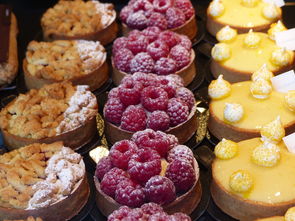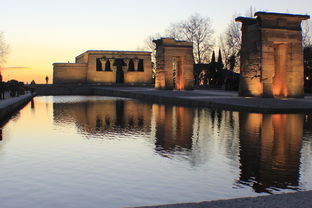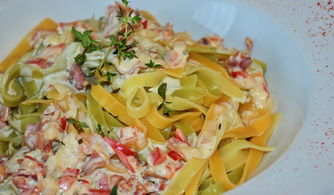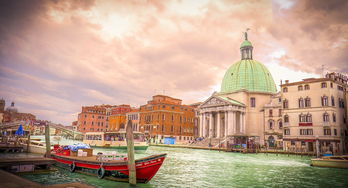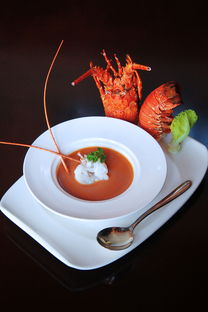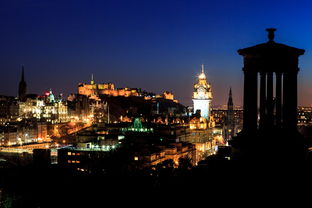Exploring the World Through the Lens of Food and Scenery:A Glimpse into the English Language
Introduction
The English language is a global phenomenon, with its influence stretching across continents and cultures. It's not just a means of communication; it's a window into the world's diverse culinary traditions and breathtaking landscapes. In this article, we'll delve into the English terms that capture the essence of "美食美景" or "gourmet food and beautiful scenery," and explore how these words can transport us to different corners of the globe.
The Allure of Gourmet Food: English Expressions
1、"Culinary Delights" - This phrase encapsulates the joy and satisfaction derived from exquisite food. It's a term that can be used to describe a wide range of dishes, from a simple yet perfectly cooked meal to a multi-course banquet that showcases the creativity and skill of a chef.
2、"Gastronomic Journey" - A journey through food is a journey through culture. This term is often used to describe a series of meals or tastings that allow one to experience the flavors and traditions of a particular region or country.
3、"Epicurean Adventure" - Inspired by the ancient Greek philosopher Epicurus, who believed in the pursuit of pleasure, this term is used to describe a pursuit of the finest food and drink experiences.
4、"Culinary Masterpiece" - This term is reserved for dishes that are not just delicious but also works of art. It's a dish that is crafted with such precision and skill that it becomes a memorable experience.
5、"Foodie Paradise" - A place where food enthusiasts can indulge in a variety of high-quality, delicious, and diverse culinary offerings.
The Charm of Beautiful Scenery: English Expressions

1、"Breathtaking Vistas" - This phrase is used to describe views that are so stunning they take one's breath away. It could be a sweeping landscape, a majestic mountain range, or a serene beach at sunset.
2、"Picturesque Landscapes" - A term that evokes the idea of a scene that could be captured in a painting, with its perfect balance of colors, shapes, and natural elements.
3、"Scenic Wonders" - This phrase is used to describe natural features that are so extraordinary they seem to defy explanation, such as the Grand Canyon or the Northern Lights.
4、"Idyllic Settings" - A term that brings to mind peaceful, pastoral scenes that are often associated with a simpler, more carefree way of life.
5、"Natural Splendor" - A phrase that captures the awe-inspiring beauty of the natural world, from the smallest flower to the most expansive forest.
The Connection Between Food and Scenery
The English language beautifully captures the synergy between food and scenery. When we travel, we often seek out both the local cuisine and the natural beauty of the places we visit. Here are some ways these two elements are intertwined in English:
1、"Eat with Your Eyes" - This idiom suggests that the visual appeal of food is as important as its taste. A dish that looks as good as it tastes is a true culinary delight.
2、"A Feast for the Senses" - This phrase is used to describe an experience that engages multiple senses, such as a meal accompanied by a stunning view or a concert.
3、"Dining with a View" - A popular concept in many restaurants and cafes, this phrase refers to the practice of serving food in a location that offers a beautiful view, enhancing the dining experience.
4、"Cuisine and Scenery" - Sometimes used as a travel guide category, this term combines the two concepts, suggesting that the best travel experiences involve both great food and beautiful settings.
5、"Food for the Soul" - While this phrase can refer to any nourishing experience, it's often used to describe a meal that is not just satisfying but also emotionally fulfilling, often in a setting that is both peaceful and beautiful.
The Global Impact of English in Food and Scenery
English is the lingua franca of the culinary world, with many international chefs and food critics using it to describe and critique dishes from around the globe. Similarly, English is often the language used to describe and promote travel destinations, from the brochures of luxury resorts to the travel blogs of adventurous tourists.
1、"International Food Language" - English has become the common language for discussing food across cultures. Terms like "fusion cuisine" and "farm-to-table" are part of the global food conversation.
2、"Travel English" - Many travel-related terms are now part of the English lexicon, such as "bucket list," "staycation," and "off the beaten path."
3、"Cultural Exchange" - The English language facilitates the sharing of food and travel experiences, allowing people from different backgrounds to learn about and appreciate each other's cultures.
Conclusion
The English language is a rich tapestry that weaves together the threads of food and scenery, allowing us to experience the world's culinary and natural wonders. Whether we're describing a mouthwatering dish or a breathtaking view, the English language provides us with the words to capture the essence of these experiences. So, the next time you're planning a trip or sharing a meal, remember the power of English to connect us to the global community of food and travel enthusiasts.

